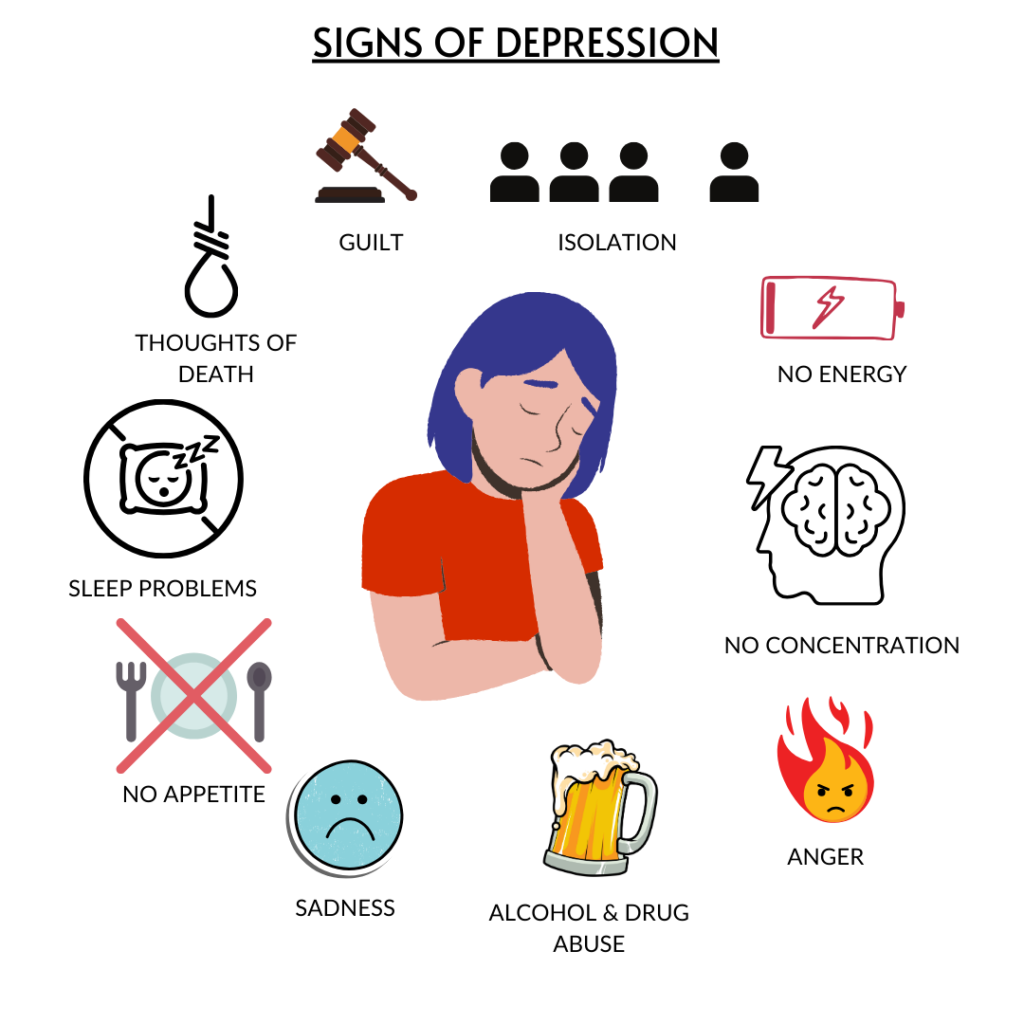Depression is on the rise both in the United States and worldwide. According to the UN, millions of people worldwide are suffering due to mental health issues, and it is estimated that one in four will experience a mental health problem in their lifetime. Depression is the leading cause of time lost due to disability worldwide. And even though there have been some gains in recent decades in understanding and accepting mental disorders, stigma still exists around mental illness in general.
WHAT IS DEPRESSION?
Depressive disorder is a common but serious mental health condition that requires understanding and medical care. It is more than just feeling low or going through a rough patch. It involves feeling sad, irritable, or empty and includes a loss of pleasure or interest in your regular activities. A depressive episode lasts most of the day every day for at least two weeks. Left untreated, depressive disorder can be devastating for those experiencing it and their families. Unfortunately, depression accounts for nearly 40,000 cases of suicide each year in the US.
Over 21 million Americans experience major depression each year. Depression can happen to anyone, including children and adolescents. Moreover, women are more likely to have depression than men. It can affect all aspects of life, including relationships with family, friends, and the community. Depression can result from or lead to problems at work or school.
ARE THERE DIFFERENT KINDS OF DEPRESSION?
Yes, there are different kinds of depression. Some include:
- Clinical depression (major depressive order). This is the most severe and most common type.
- Postpartum depression. This typically develops within 4 weeks of delivering a baby.
- Seasonal affective disorder (seasonal depression). This typically arises during the fall and winter and goes away in the spring and summer.
- Persistent depressive disorder (formerly called dysthymia). This lasts for at least two years with mild or moderate depression symptoms.
People with bipolar disorder also experience episodes of depression in addition to manic or hypomanic episodes. Click below to watch a brief video describing the different forms of depression and how each might look.
WHAT ARE THE SYMPTOMS OF CLINICAL (MAJOR) DEPRESSION?
Symptoms may include:
- feeling sad, irritable, empty
- loss of pleasure or interest in activities
- poor concentration
- excessive guilt or low self-worth
- hopelessness about the future
- thoughts about dying or suicide
- disrupted sleep
- changes in appetite or weight
- physical aches and pains
- feeling very tired or low in energy

WHERE CAN I GO FOR HELP?
If you or someone you know is experiencing these symptoms, we encourage you to contact your doctor or healthcare professional. You should also contact a close friend or loved one when feeling prolonged symptoms. Your minister or someone else in your faith community can be very helpful too.
Here are additional free resources for you to use:
- Call or text 988 to reach the 988 Mental Health Crisis Lifeline, available 24 hours a day, seven days a week. Lifeline Chat Services are also free and confidential.
- U.S. veterans or service members in crisis can call 988 and press “1” for the Veterans Crisis Lifeline — or text 838255.
- The Crisis Lifeline also has a Spanish-language phone line at 1-888-628-9454 (toll-free)
- If in immediate danger of hurting yourself or someone else, call 911
WILL I FEEL THIS WAY FOREVER?
Depression is treatable with the right therapies and medications. Sadly, some populations either refuse to seek help or do not have proper access to effective healthcare treatments. Self-care can also help fight your symptoms of depression. Things like deep breathing, yoga, meditation, walking, being in nature, and journaling, can all help alleviate your symptoms. Art and music therapy can also be beneficial. It is important to remember that what works for some may not work for you. So, keep trying until you find what’s right for you and be consistent.
Remember, you are not alone.
How Can We Help?
Legal and Privacy
Quick Contacts
- (630) 884-4449
- Questions@mirror.care
-
Mirror Care Pharmacy 17W535 Butterfield Rd Suite 001
Oakbrook Terrace, IL 60181
Receive Updates from Mirror Care
- Copyright 2025 Self Therapeutics, LLC

